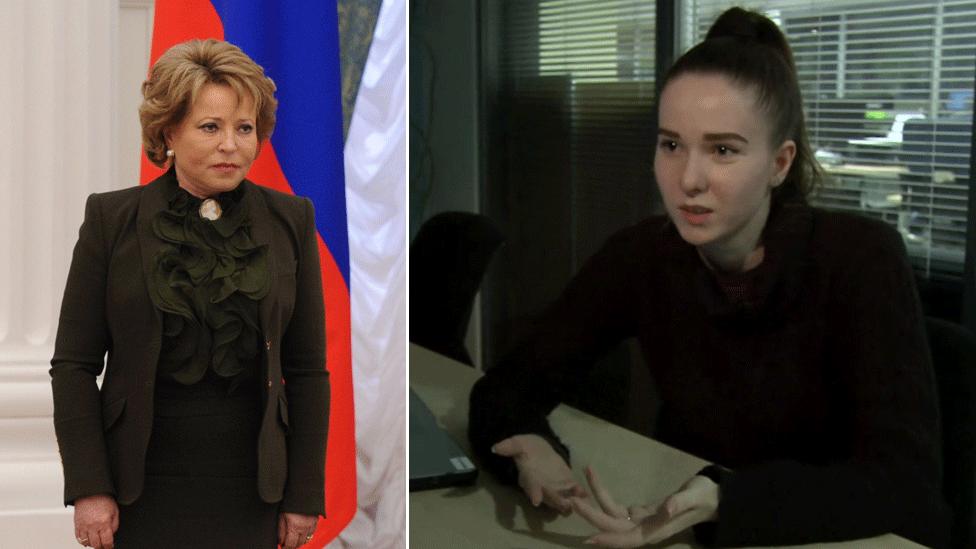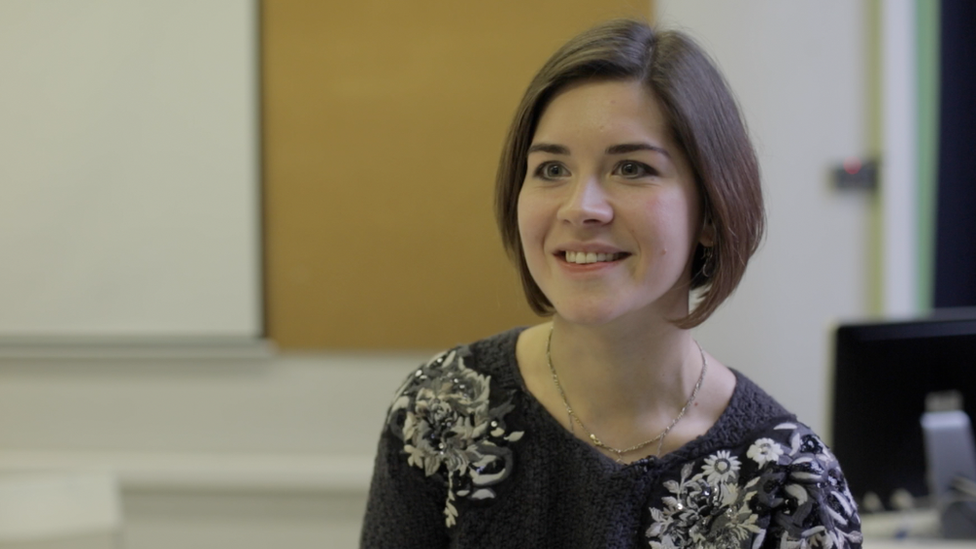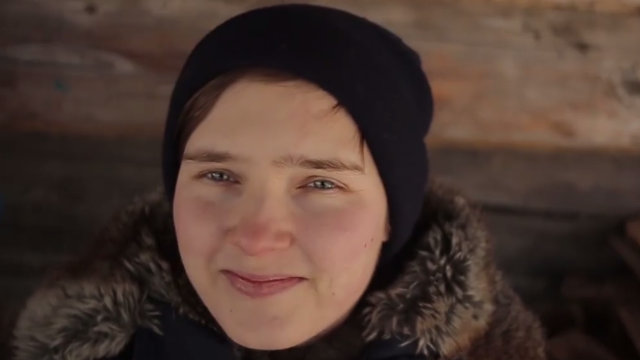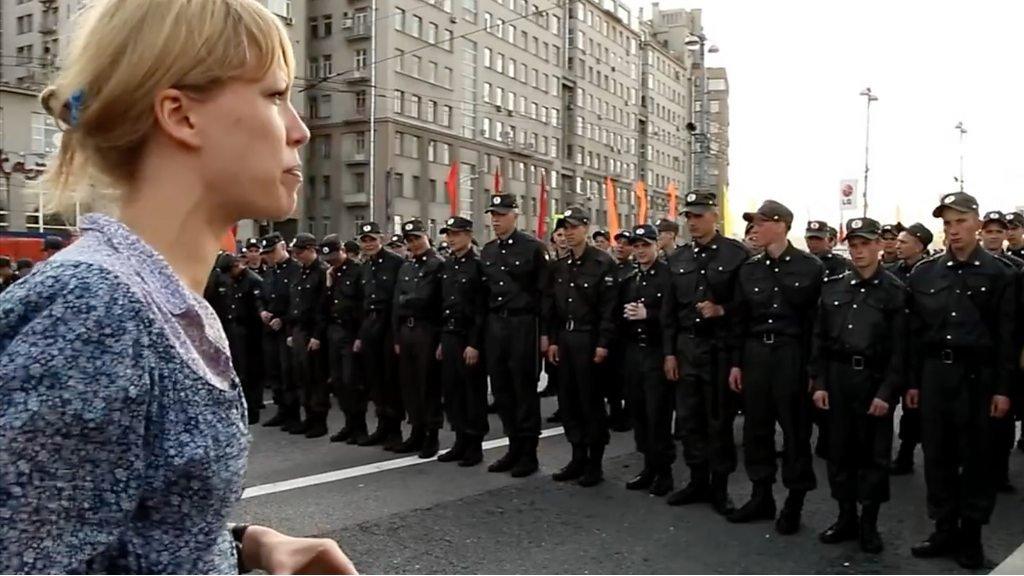100 Women 2016: Russia's female role models across the divide
- Published
Mario Baronova is a growing force in Russia's opposition movement
Maria Baronova is furious. She's one of the most famous faces of the political opposition but for now she has turned her anger on the BBC.
She is unhappy with the inclusion of another well-known Russian, Olympic whistleblower Yulia Stepanova, in this year's BBC list of 100 influential women.
Maria Baronova swapped a career in chemistry for political activism and she's fearlessly critical of the current state of Russia.
She defends freedom of speech but is also highly critical of Yulia Stepanova for choosing to speak out abroad rather than at home, about state-sponsored doping in sport.
It's the kind of contradiction that abounds in today's Russia, exposing the complex fault-lines that criss-cross society.
A very different Maria
Across Russia's political divide is another Maria, who takes a similarly hard line on whistle-blowing and whose inclusion in this year's 100 Women list has also raised eyebrows inside and outside Russia.
Maria Zakharova is Russia's first ever female foreign ministry spokesperson.
Maria Zakharova told the BBC after Donald Trump's election victory that Russia was ready to work with him
She is one of the most high-profile and controversial members of a new generation of Russian women moving into the male-dominated world of Russian politics.
A sharp dresser with an even sharper tongue, Maria Zakharova burst through the glass ceiling and on to the world stage in 2015 and has rarely been out of the headlines since.
As the public face of Russia's increasingly fractious relationship with the West, her language is often startlingly undiplomatic.
Zakharova: Jews 'mainly backed Trump'
Her recent comments about the way Russian Jewish emigres were voting in the US election led to accusations of anti-Semitism by critics abroad.
But none of that seems to matter to the many Russians who like her style and, as her big following on Instagram and Facebook shows, she is now a role model for a significant section of the internet generation.
Away from the headlines, many other young Russian women are trying in different ways to reshape their role in society.
Yevgenia Chichulina is a softly-spoken Moscow politics student who also has political ambitions.

Yevgenia Chichulina (R) sees the speaker of the upper house of parliament Valentina Matviyenko as a role model
She's an active member of the ruling United Russia Party and hopes to land a job in the Culture Ministry one day.
"I'd like to achieve something important and you can only do that if you have some power," she says.
Yevgenia models herself on Valentina Matviyenko -- a career politician from an older generation who is now speaker in the Russian parliament's upper house.
"She's achieved a lot, not just a successful career, but she also has a family, and an education," says Yevgenia. "She's very open, both as a politician and a person."
Building a career
Irina Sergeyeva is a singer-songwriter with Moscow rock band Kiitos.
"In this male-dominated country I'm really lucky that the men around me are really supportive." she says.

When she's not singing in a rock band, Irina Sergeyeva is studying for her PhD
She admires Russian pop star Zemfira for her independence and talent but Irina's real heroine is someone closer to home -- her mother.
"She's a professor of music at the conservatory and she's inspiring because she's a really gifted pianist born into a family of engineers," she says.
"She had to build her career for herself."
Guzel Sanzhapova, a 27-year-old businesswoman from Yekaterinburg, has also forged her own career.
She crowd-funded the money to set up an organic honey factory in her grandmother's village and now employs a team of elderly pensioners, providing them with the rare chance to earn an income.
"I might look small and frail," she says. "But I am much better than most men at sitting down and thinking through what is going to happen tomorrow."

Guzel Sanzhatova says women are better than men at problem-solving
But Guzel isn't interested in role models.
"I try to follow my own way and my intuition doesn't normally let me down," she says.
Back in Moscow, anti-government activist Maria Baronova also says she doesn't have any role models, although she admires defeated US presidential candidate Hillary Clinton for her long career in politics.
Although she felt totally alone at the beginning of her campaign, Maria now gets inspiration from her colleagues.
Fighting for change in Russia is a long-term commitment, she believes.
"But these days I don't feel so alone."
100 Women will be speaking to Yulia Stepanova, Russia's Olympic Whistle-blower on Friday.
- Published8 December 2016
